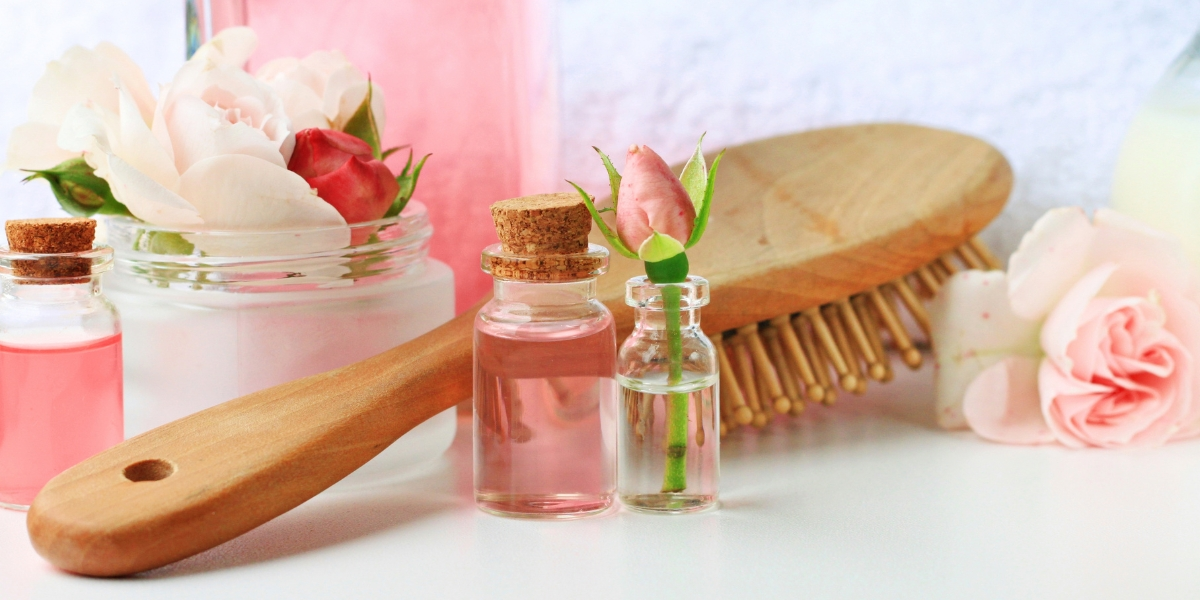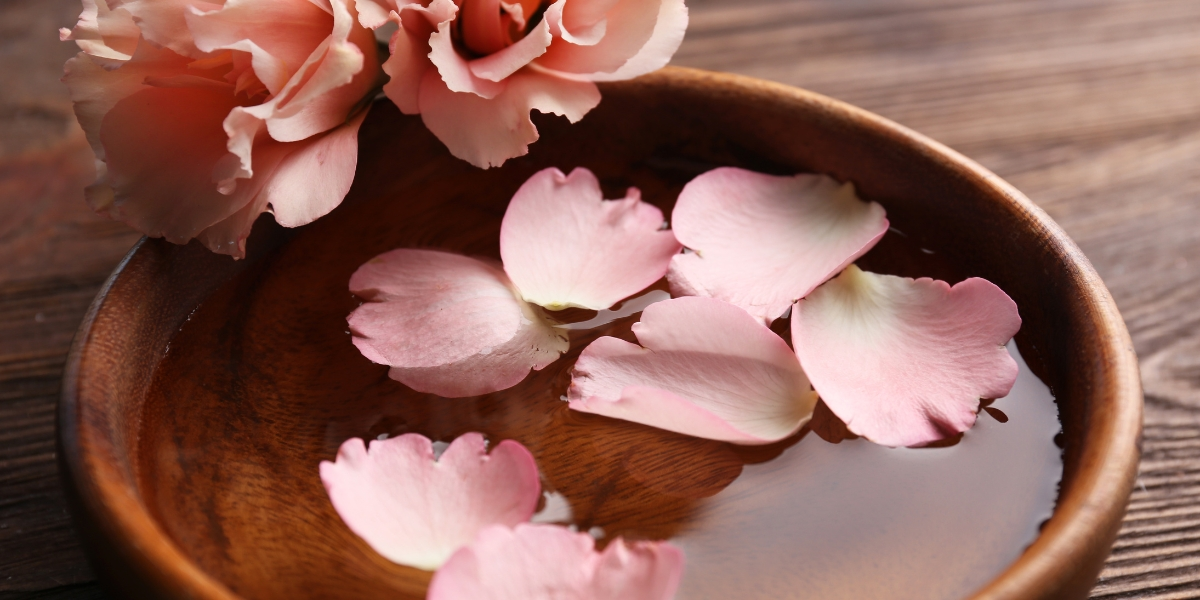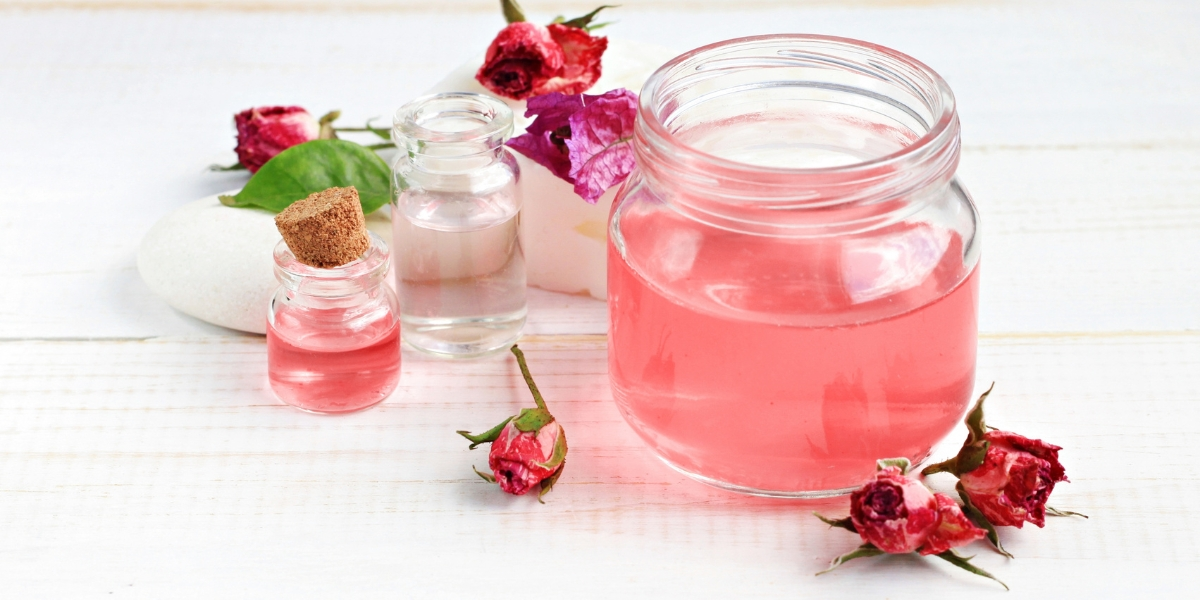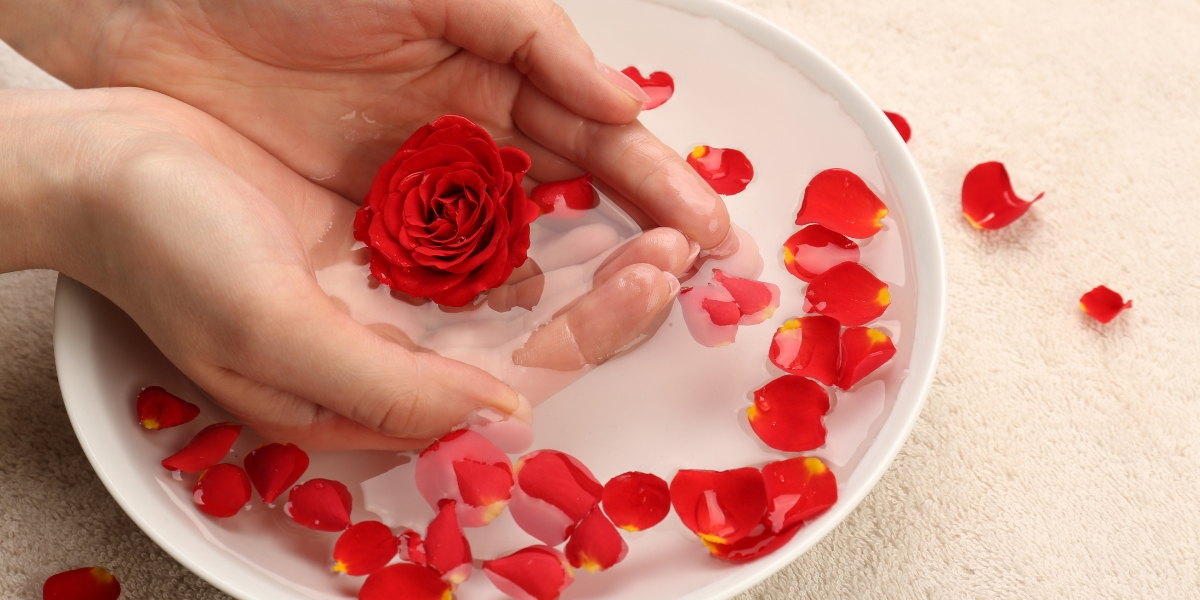Blog
Is Rose Water Good for Hair? Here’s What to Know in 2024

Rose water, a fragrant and versatile ingredient, is often celebrated for its skin benefits, but what about its effects on hair? In this comprehensive guide we’ll explore whether rose water is good for your hair, its benefits, best practices for use, and much more. Let’s dive in!
About rose water
The cultivation of roses, rose oil, and rose water is thought to have started thousands of years ago in ancient Persia, an area now known as Iran. Rose water may have first been made by Avicenna, a Persian physician and alchemist who lived during the 10th century.
As noted above, rose water is made by distilling rose petals with steam or boiling water. Typically, the most fragrant rose varieties are used for this purpose. These include Rosa canina (wild rose, also known as dog rose), Rosa damascena (damask rose) and Rosa centifolia (cabbage rose). The resulting mixture has a gentle, pleasing scent and potential beauty benefits for skin and hair.
Is Rose Water Good for Hair? Uncover the Benefits and Best Practices
It is a natural product that has been widely used for ages, especially as part of a beauty regime due to its calming scent. But is it as good for the hair as it is for the skin? We will address this question as well as give you recommendations on how to use rose water in hair care.
The Benefits of Rose Water for Hair
Rose water is more than just a pleasant fragrance, it offers numerous benefits for hair health. Here’s why you might consider adding it to your hair care routine:
1. Hydrates and Moisturizes
Rose water is known for its hydrating properties. It helps retain moisture in the hair, preventing dryness and adding a natural shine. This can be particularly beneficial for those with dry or damaged hair.
Fact: According to research or study, it found that hydrating treatments like rose water can improve hair texture and reduce dryness.
2. Balances Scalp pH
Maintaining the right pH balance on your scalp is crucial for healthy hair. Rose water helps in balancing the scalp’s pH (refers to the acidity or alkalinity of the scalp). It helps maintain a healthy environment for hair and prevents issues like dryness or irritation.
Fact: A balanced scalp pH can help in reducing scalp issues. Research indicates that maintaining a scalp pH between 4.5 and 5.5 is ideal.
3. Soothes Scalp Irritation
Rose water has an anti-inflammatory effect, which may be useful in reducing inflammation of the skin on the head. This makes it advisable for those who have a problem of itching or redness on their skin.
Fact: According to a study/research, rose water’s anti-inflammatory properties can reduce scalp irritation.
4. Strengthens Hair
It also facilitates the use of rose water, this makes the hair silky plus helps to circulate blood on the head, which in turn strengthens the head. This helps in feeding nutrients to the hair roots, thus promoting hair growth in women.
Fact: Improved blood circulation can stimulate hair growth. Studies suggest that enhanced scalp circulation can support hair health and growth.
5. Adds shine and fragrance
Rose water not only adds a natural shine to your hair but also leaves it smelling fresh. It’s a natural way to make your hair look and feel healthier.
Best Practices for Using Rose Water in Your Hair Care Routine
To maximize the benefits of rose water for your hair, follow these best practices:
1. Use as a Hair Rinse
Dilute rose water with water and use it as a final rinse after shampooing. This helps lock in moisture and adds shine.
How-to: Mix 1 part rose water with 3 parts water. Rinse your hair after washing and conditioning.
2. Add to Hair Masks
Add rose water to your homemade hair masks for added hydration and nourishment.
How-to: Mix rose water with ingredients like yogurt or honey. Apply to your hair, leave for 20 minutes, and then rinse.
3. Apply Rose Water to Scalp
Use a rose water spray to lightly mist your scalp and hair throughout the day. This can help maintain hydration and freshness.
How-to: Fill a spray bottle with rose water and spritz onto your scalp and hair as needed.
4. Combine with Essential Oils
You can also try adding ingredients to rose water that are known to be beneficial to hair. These include herbs, such as Gotu kola, or a few drops of an essential oil, such as lavender or rosemary.
How-to: Add a few drops of essential oil to rose water. Apply to your hair and scalp for added benefits.
Rose Water vs. Other Hair Care Ingredients
How does rose water compare to other popular hair care ingredients?
1. Rose Water vs. Coconut Oil
Coconut oil is known for its deep conditioning properties, while rose water offers hydration and scalp-soothing benefits. Combining both can provide a comprehensive hair care solution.
2. Rose Water vs. Aloe Vera
Aloe Vera is excellent for soothing and moisturizing, similar to rose water. However, rose water has added benefits of balancing scalp pH and adding fragrance.
3. Rose Water vs. Apple Cider Vinegar
Apple cider vinegar is known for its clarifying properties. Rose water, on the other hand, provides hydration and soothing benefits. They can be used together to balance and refresh the scalp.
Facts and Figures about Rose Water for Hair
1. What is an interesting fact about roses?
Roses are possibly one of the oldest flowers. There are rose fossils that date back 35 million years. The oldest living rose is 1,000 years old, and it lives on the wall of the Cathedral of Hildesheim in Germany!
2. Usage Statistics
Rose water is popular in beauty routines worldwide. Approximately 30% of users report noticeable improvements in hair texture and hydration after using rose water.
3. Industry Growth
The global rose water market is growing, with a significant increase in demand for natural and organic beauty products. The market is expected to grow by 5.4% annually. Global Rose Water The market reached a value of around USD 477 million in 2023. The market is projected to grow at a CAGR of 7.6% between 2024 and 2032, reaching a value of around USD 921 million by 2032.
DIY rose water recipe
If you want to make rose water at home, start with a half dozen fragrant roses. Many hybrid varieties of modern-day roses were cultivated for size or color instead of scent, so sniff before you buy. You’ll also need distilled water.
- To start, gently remove the rose petals from their stems and rinse them under warm running water in a colander.
- Place the rose petals in a large pot and cover with the distilled water.
- Cover the pot with a lid.
- Simmer the rose petals on medium heat for around 20 minutes or until the petals lose their color.
- Strain the rose petals out of the rose water and discard the petals.
- Store the rose water in one large or several small glass jars in a cool place, away from direct sunlight.
Conclusion
Rose water is a valuable addition to your hair care routine, offering hydration, soothing properties, and added shine. By incorporating rose water into your hair care routine, you can enjoy healthier, more vibrant hair.
Explore our range of high-quality rose water products and other beauty essentials at Revol.pk. Share this article with friends who are looking for effective hair care solutions, and don’t forget to drop your experiences, tips, and questions in the comments below!
Common FAQs About Rose Water for Hair
1. What is a fact about rose water?
Rose water is a liquid made from water and rose petals.
2. Can rose water help with dandruff?
Rose water can help soothe an irritated scalp and balance pH, which may reduce dandruff symptoms. If you’re dealing with persistent dandruff issues and experiencing hair loss, check out our detailed article on the connection between dandruff and hair loss for more insights and solutions.
3. How often should I use rose water on my hair?
Using rose water 2-3 times a week as a rinse or in hair masks is generally effective.
4. Is rose water suitable for all hair types?
Yes, rose water is gentle and can benefit all hair types, including dry, oily, and sensitive scalps.
5. Can rose water make my hair greasy?
Rose water is lightweight and should not make your hair greasy if used properly.
6. How can I store rose water?
Store rose water in a cool, dark place to maintain its freshness and effectiveness.
7. Can I use rose water daily?
Daily use is generally safe, but it’s best to monitor your scalp’s response and adjust usage as needed.
8. Can rose water treat hair loss?
While rose water can improve scalp health, it is not a cure for hair loss. Combine it with other treatments for best results.
9. Does rose water increase hair growth?
Yes, because rose water is beneficial to the overall health of the scalp, it can also help establish a good foundation for hair growth and help prevent hair loss. Rose petals are high in vitamins A, B3, C, and E, which nourish the scalp and stimulate hair follicles, promoting hair growth.
10. How can I test if I’m allergic to rose water?
Perform a patch test by applying a small amount to your wrist and waiting 24 hours for any adverse reaction.
11. Does rose water have any side effects?
Rose water is generally safe, but overuse may cause scalp sensitivity. Always use as directed.
12. Can I make rose water at home?
Yes, you can make rose water at home using fresh rose petals and distilled water.





One thought on “Is Rose Water Good for Hair? Here’s What to Know in 2024”